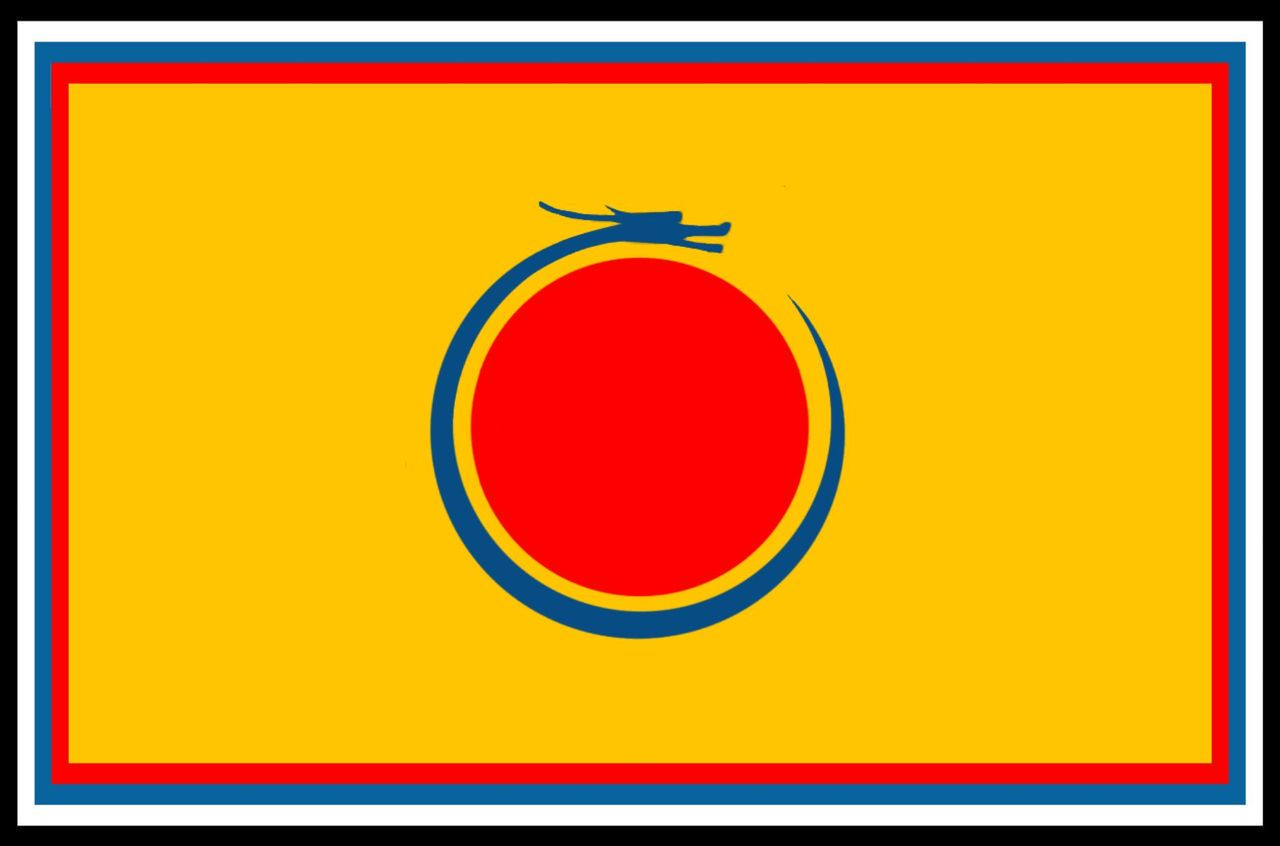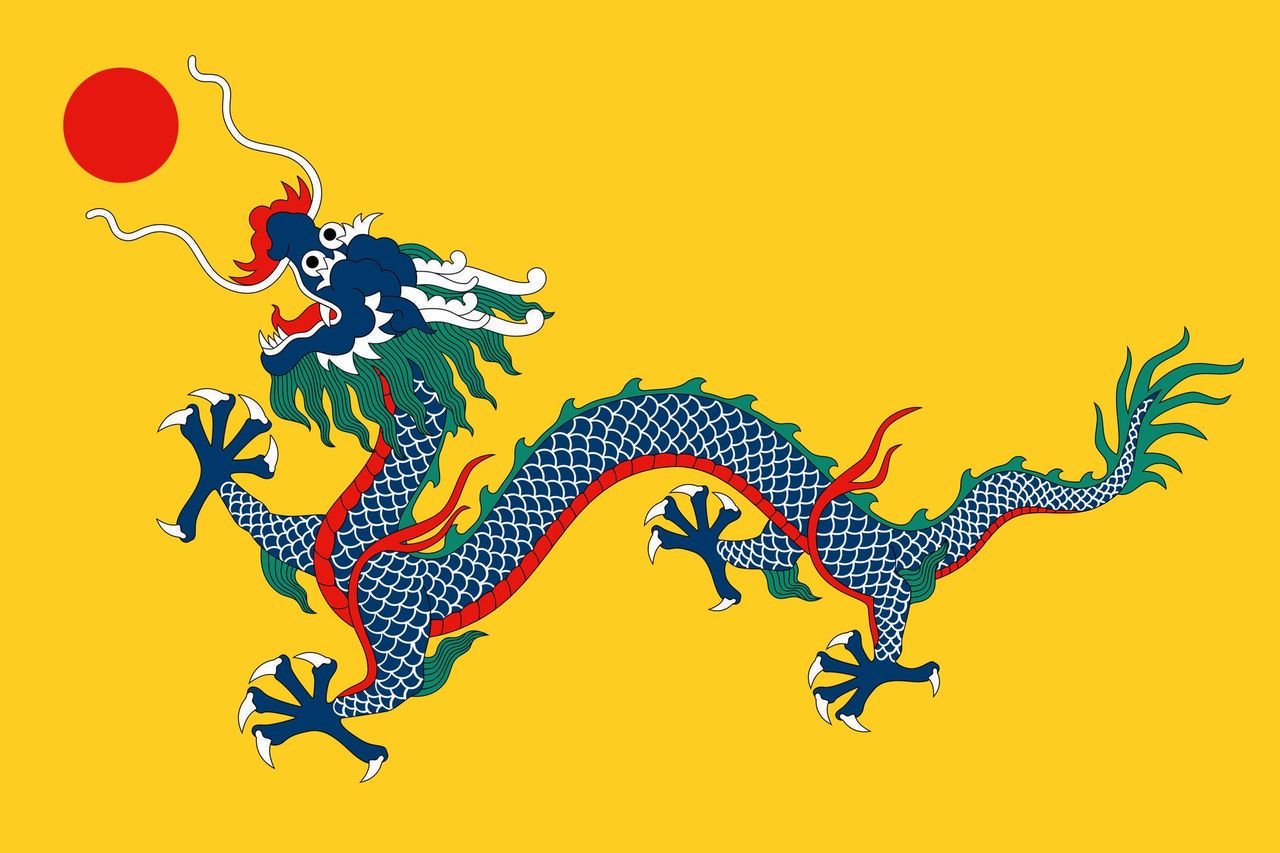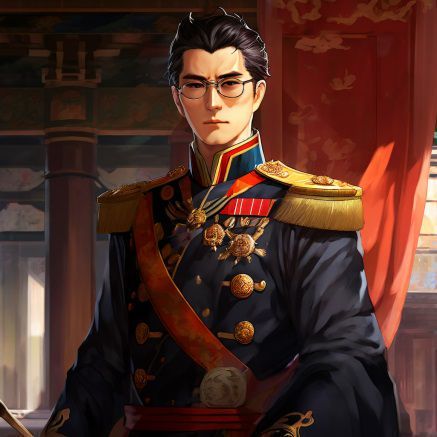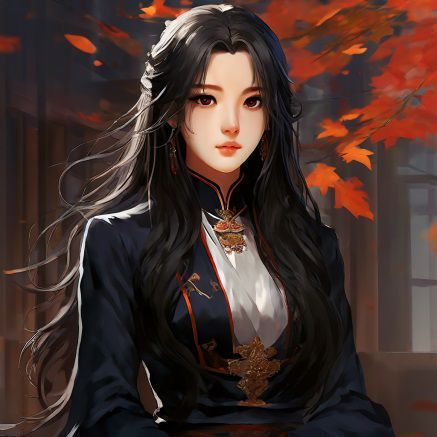Qing Empire
(A/N: This version of the Qing Empire belongs to Wattpad Author WWIIFanHistory. The same goes for its military arsenal.)
==========
Info: Qing Empire: The Sovereign Realm of Expansion (Manchu-Banner Conformist Expansionist Imperialism)
History: The Qing Empire, or officially the Empire of Great Qing, with its rich cultural heritage and long history, contributed to the United Nations by promoting cultural preservation and heritage conservation. Their expertise in traditional medicine, science, philosophy, spanning arts, and literature were shared with other member nations, fostering cultural exchange and appreciation, contributing to the preservation and promotion of diverse cultural practices, and fostering understanding and mutual respect among nations while offering valuable insights from their traditional wisdom.
The Qing Empire had a diverse economy, including agriculture, handicrafts, industry, commerce, and trade. The empire also had valuable resources such as silk, tea, and porcelain. The Qing Empire contributed its cultural heritage and artistic traditions to the United Nations, promoting cultural exchange and preserving historical artifacts. It also shared expertise in the production of valuable goods such as silk and tea, and contributed to sustainable agricultural practices. Additionally, the Qing Empire was known for its silk and tea production, which were highly sought-after commodities in international trade. Its expertise in sericulture, tea cultivation, and processing techniques were shared within the United Nations to promote fair trade practices, ensure quality standards, and enhance global market access for these products.
Not only that, but the Qing Empire also had a rich tradition of herbal medicine and holistic healing practices. Its knowledge of traditional medicine was valuable in the United Nations' efforts to promote integrative healthcare, explore alternative therapies, and preserve indigenous medical practices.
Education in the Qing Empire places a strong emphasis on STEM fields and pragmatic, applied knowledge, while also maintaining a focus on Confucian classics and the prestigious Imperial Examination system. This blended approach aims to nurture a scholarly bureaucratic class adept at both traditional statecraft and modern problem-solving. Alongside the core curriculum, there has been an increase in international academic exchanges and exposure to Western educational models, leading to a synthesis of time-honored and contemporary teaching methods. Crucially, the curriculum also incorporates Sun Tzu's principles of nationalism, democracy, and welfarism, ensuring that the next generation of Qing officials are well-versed in both the Confucian philosophical tradition and the progressive ideals of civic participation and social responsibility.
One notable example is the reexamination of the Confucian social hierarchy, where the Emperor was once viewed as the absolute authority. While the imperial institution remains, there are now greater checks and balances, with the scholar-gentry class and regional representatives playing a more active role in governance. The concept of the "Mandate of Heaven" has evolved to emphasize the ruler's responsibility to serve the people, rather than their divine right to command.
Confucian teachings on gender roles have also been reinterpreted to promote greater equality between men and women. The traditional emphasis on filial piety and the patriarchal family structure has been balanced with a recognition of women's intellectual and professional capabilities. Female scholars and officials now hold positions of influence, and there are initiatives to ensure equal access to education and career opportunities.
Additionally, the Confucian emphasis on social harmony and community has been adapted to embrace diversity and protect the rights of ethnic minorities. While the Qing Empire remains a unitary state, regional autonomy and cultural preservation are respected, allowing for the flourishing of minority languages, traditions, and self-governance within the broader national framework. Finally, the Confucian ideal of the "benevolent ruler" has been expanded to include individual liberties and human rights. The state now provides a social safety net and guarantees basic freedoms, such as freedom of speech, religion, and assembly, while still maintaining the Confucian emphasis on social responsibility and the common good.
Within Qing society, there has been a gradual shift away from the strict Manchu-Han divide of the past, with concerted efforts to integrate diverse ethnic groups into a modernized bureaucratic class. These officials often blend traditional Confucian values with Western-influenced expertise and Sun Tzu's tridemist ideals, serving as conduits between the centralized imperial authority and the regional autonomy granted to minority populations. While the Emperor remains the highest social and political figure, according to Confucian teachings, there are increasing pushes for greater equality, liberty, and freedom across genders, ethnicities, and social classes, reflecting the Qing's embrace of Sun Tzu's democratic principles.
The Qing Empire's cultural landscape continues to thrive, with a flourishing of traditional arts, philosophy, and literature alongside the adoption of international cultural influences. Mandarin Chinese is maintained as the unifying language, while reverence for Confucian teachings, Imperial traditions, and the scholar-gentry class endures as a cornerstone of national identity. At the same time, the Qing's cultural heritage celebrates the principles of nationalism, reflecting the shared Confucian-Suntzian heritage, and the spirit of welfarism, with the state actively supporting and promoting the arts, education, and the overall well-being of the populace. From the grand imperial palaces and gardens to the vibrant performing arts, the Qing's cultural legacy is sustained and evolved to meet the demands of the modern era.
The Qing Empire possessed a long-standing military tradition and its vast manpower of soldiers and population – stretching from mainland China to Taiwan and Hainan islands, Mongolia, and Tibet, with a focus on and known for their disciplined armies, adherence to hierarchical structures, and efficient command systems. It was called the Imperial Chinese Army. With its vast military and highly advanced and disciplinary forces, they excelled at organizing large-scale military campaigns, coordinating logistics, and maintaining order within the United Nations' military forces. This military heritage contributed to the UN's peacekeeping efforts, emphasizing discipline, order, and cooperation among member nations.
The Qing Empire's ideology, rooted in Confucianism and a hierarchical social structure, continued to shape their cultural and philosophical perspectives within the United Nations. Their emphasis on the importance of societal harmony, respect for authority, and cultural preservation in promoting stability and mutual understanding among member nations.
However, like many other imperialist empires, the Qing Empire was no different, which is why it earned the name, "The Sovereign Realm of Expansion". This name emphasizes the Qing Empire's imperialistic drive for territorial expansion and their claim to sovereign authority. It reflects their historical ambition to expand their realm and exert control over diverse ethnic groups. Not only that, but Calina Ilyich Lenin named their characteristic imperialism, "Manchu-Banner Conformist Expansionist Imperialism", which emphasized the expansionist ambitions of the Qing Empire's Manchu ruling elite, who sought to extend their influence and control through military actions. This name would imply that the socialist and social democratic parties conformed to the imperialist agenda of the Qing Empire, failing to challenge or transform the imperialist system in any meaningful way, but rather making policies that advocated for human rights, welfare trade, economic growth, and cultural conservation to the classes and colonies.
Symbol/Flag:

Battle Flag:

Motto: "天造皇清" ("Qing Emperor is Heaven-sent")
Military: Imperial Chinese Armed Forces (ICAF)
Military Branches:
ICAF Ground Force
ICAF Navy
ICAF Air Force
ICAF Rocket Force
ICAF Mecha Corps
ICAF Space Force
Leaders: Emperor and Prime Minister
Emperor: Tiānwáng

Prime Minister: Crown Princess Sūn Qīnglíng Wúshén (Descendant of Sun Tzu)

Bạn đang đọc truyện trên: AzTruyen.Top